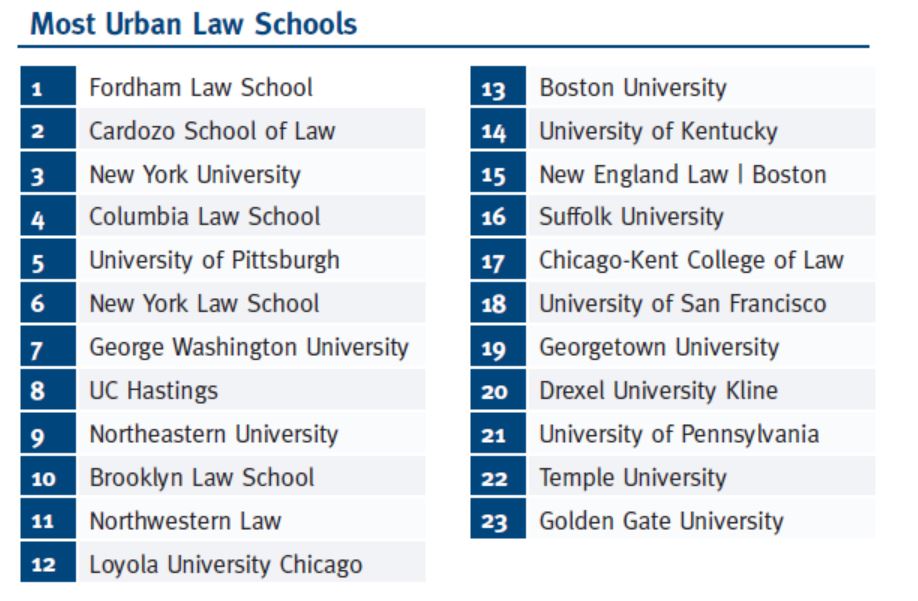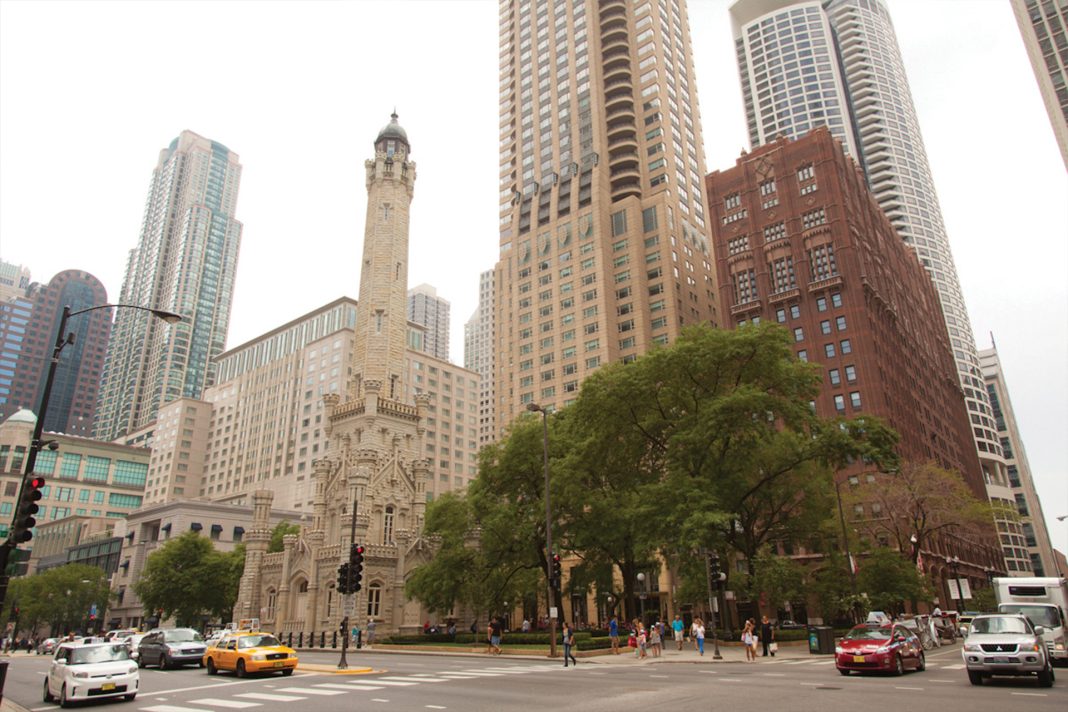A big city comes with more of everything — people, opportunities, competition and resources. Most big cities also offer greater diversity.
New York City; Boston; Philadelphia; Washington, D.C.; Chicago and San Francisco all boast several law schools that include these benefits.
Location is key to flourishing in law school, so it’s important to think about whether a prospective school is in a place you like and may want to stay after graduation, law school officials say. Being in a location where you’ll be happy is as important as being academically secure.
preLaw assessed the population density of each law school’s location to come up with a list of the most urban law schools. We capped the people-per-square-mile figure at 15,000, with 23 schools making the list. Suffolk University Law School is in the heart of downtown Boston, across the street from Boston Common and the Freedom Trail, two blocks from the State House and a short walk from the financial district.

“Different cities speak to different people,” said Gabe Teninbaum, assistant dean for innovation, strategic initiatives and distance education at Suffolk Law. “Not all cities are made the same, so you have to go and experience it — not just the school, but around that area.”
Urban law schools also can offer an array of internships at nearby law firms, city agencies and government offices. There are also more legal service providers in urban areas, such as Greater Boston Legal Services, which is just a few blocks from Suffolk Law.
These opportunities give students a chance to do diverse things in law school, Teninbaum said.
“There’s this theory about where good ideas come from — being together in one place to bounce ideas off each other,” he said. “An urban setting allows you to do that more broadly.”
Urban environments also offer a large concentration of young people, energy and ideas, as well as legal job opportunities that suit their needs and desires.
Carey Bertolet Grand, dean of career services at Benjamin N. Cardozo School of Law at Yeshiva University, said many law students are surprised by which practice areas or industries inspire them.
“In a big city, you’ll find all manner of lawyer represented, so as law students change their focus, big cities offer them the resources to pivot and adjust their interests,” Bertolet Grand said. “For a law student wanting the flexibility to change their mind or their goals, big cities give them access to a wide range of options to consider post-graduate.”
Cardozo School of Law is in the heart of New York City. Students come from more than 135 undergraduate institutions across the U.S. and around the world, including China, Colombia, Germany, South Africa, Canada and South Korea.
The Cardozo Data Law Initiative, one of the school’s newer programs, prepares students for careers in the fields of information governance, e-discovery, data privacy and cybersecurity. It offers students a certificate if they meet the requisite number of relevant courses and externship credits.
A large base of diverse alumni support also attracts students to urban schools.
Loyola University Chicago School of Law has more than 12,000 alumni who practice throughout the U.S. in government offices, public interest organizations, law firms, corporations, consulting firms, nonprofits and the judiciary. Many alumni live and work in the Chicago area and help mentor law students.
Learning the law doesn’t end at the classroom door, the school says.
Golden Gate University School of Law, in downtown San Francisco, has been recognized by preLaw magazine as one of the best law schools for diversity. The school is steps away from a global hub of the legal, business and technology industries. Students have direct access to courts, law firms, advocacy organizations, government agencies and expanding tech companies.
The flexibility of programs at big city law schools is also a draw.
Suffolk Law added a hybrid J.D. program last fall. The flexibility of the hybrid program allows students to balance a legal education in Boston with other important aspects of their lives. They can benefit from a big city law school while living closer to their jobs and families, possibly in an area with a lower cost of living, said Dean Andrew Perlman.
“Modern law students deserve flexibility, both in terms of time and geography,” he said.
This story was featured in the Spring 2022 issue of preLaw Magazine.

